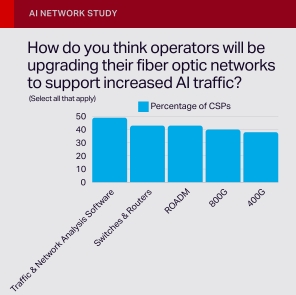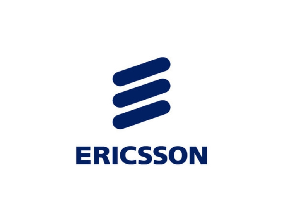AT&T and Verizon cut 5,100 more jobs as AI fears grow
Quarterly job losses at AT&T and Verizon are now as guaranteed as pumpkins at Halloween. While American children scoop out fleshy fruit and carve devilish smiles, the US telcos are busy hollowing humans out of the workplace. After reports surfaced last month of another 4,800 planned job cuts at Verizon, its latest results this week showed headcount had fallen by another 2,700 between July and September, to about 101,200. At AT&T, meanwhile, the number was down by 2,400 in the same period, to 143,600. These are unsettling days for parts of the workforce.
Unlike Halloween, though, job cuts are not a seasonal thing for AT&T and Verizon, which slash away throughout the year and have been doing it for most of this century. As recently as 2015, they had a combined headcount of 459,150, according to filings with the Securities and Exchange Commission. The ghostly disappearance of 214,350 positions since then, almost half the entire workforce, has occurred as telecom has become a more critical feature of most people's lives.
Nor has there been any corresponding drop in company sales as business leaks to other telcos. Combined revenues fell from $278.4 billion in 2015 to $256.4 billion last year due entirely to a sales decline at AT&T. Last year, its turnover of $122.4 billion represented a 16% drop on the figure in 2015. But this meant sales per employee rose from about $520,000 to $813,000. At Verizon, they have grown from roughly $741,000 to $1.27 million. The only telecom rival they have had to worry about is T-Mobile US, which launched its disruptive "Uncarrier" campaign before 2015.
Dodgy bets and bullshit jobs
Headcount has fallen partly because both companies have exited a few ventures, including some disastrous media bets. In AT&T's case, the best known was Time Warner, the HBO-owning TV production company behind Game of Thrones and other such popular fare. Verizon's most publicized failures in this area were AOL and Yahoo, turn-of-the-century Internet properties the telco bought long after they had started to grow mold. Neither AT&T nor Verizon has been able to show it can pull off real diversification.
This also partly explains why sales have fallen in the last decade. Yet they have not halved, like the workforce, suggesting the operators need far fewer people than they once did to maintain networks, staff shops and run IT. Another possible explanation is that remaining overworked staff have been lumbered with the jobs previously carried out by laid-off colleagues. There is also the phenomenon of the "bullshit job," whereby companies accumulate mid-level managers with no real purpose.
Even so, automation, digitization and reliance on artificial intelligence (AI) have all been acknowledged by telco executives as factors in headcount shrinkage. Despite this, few company bosses are prepared to say technology will decimate the workforce like Michael Myers on an unusually successful Halloween rampage. The more palatable assessment is that AI will breed new types of job or simply help staff to be more productive. A copywriter, for example, could feed prompts into ChatGPT and use the output as the basis for marketing text, instead of more laboriously writing from scratch.
In this sort of context, AI might have benefits that are hard to measure. Operators of 5G networks have been fond of arguing that it would be impossible to run them without automation – there are just too many configurations happening from one second to the next for people to handle. As networks grow more complex, the burden of effort falls more heavily on machines without necessarily lightening the load for staff. Rather than destroying jobs, AI allows an advanced 5G network to exist without needing so many employees that it would be commercially unviable.
While all this holds some truth, a telco is under as much pressure as any other business to show that sales are rising or costs are falling – and preferably both. The obviously measurable benefits of AI are what most interest the finance director and shareholder, and there is scant evidence so far that it is boosting sales for anyone bar Nvidia, the maker of the graphics processing units used to train large language models. No sane individual would knowingly pay to watch an AI-made film, read an AI-written book or listen to AI-composed music. Even if they did, sales would probably just cannibalize revenues from generative humans.
The conversation in telecom, then, is largely about "zero-touch" or "fully autonomous" or "intent-based" networks, able to operate themselves and perform tasks with no or minimal human intervention. And the trend of declining staff numbers at AT&T and Verizon is now well established. Unless that changes or the rate slows, networks, like cars, may soon be driving themselves.





